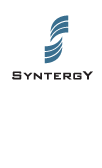Why Content Server Replication?
The relentless pace of business communications demands that all business units work with updated information at all times. If even one business unit operates with outdated information, the results can be both painful and expensive. As organizational changes or acquisitions occur the associated digital information must be reorganized, too. In some cases this may require that information is consolidated into a single content repository. In other instances the new organization may require that the information may need to be segregated, either as a result of new security requirements or the separation of lines of business. In either case, the data must be moved and made available with minimal disruption to the new organization(s).
Replication of information is critical to businesses, which must maintain uninterrupted network availability and mission-critical applications in their normal operating conditions. Every minute that networks or applications are unavailable has a very real cost associated. If replication tools are used to synchronize files, network operators can re-route users to a surviving server, and business operations can continue with minimal disruption.
When corporate acquisitions are made, replication tools allow each party to continue maintaining and operating their own servers, while allowing data to be shared. At a convenient time, the data can be migrated and absorbed. Strategic alliances between corporations present unique requirements for sharing information selectively. Granular replication tools allow strategic partners to share some, but not all, data with their partners.
During server migration, replication tools can be used to move content from the old server to the new server, allowing the migration to be completed in less time, with less cost. Experience has shown that the more successful server migrations tend to be the ones that inconvenience users the least.
Corporations that have mobile users can use replication tools to transfer user credentials, settings and profiles throughout their network, allowing travelling users to log into the local server and access their files and applications locally.
Remote branches and corporate offices can also benefit from replication technologies. When servers are located in geographically separated offices, performance is improved for local users, the user experience is dramatically improved, and up-to date content is available in the case of a network disruption.
In the specialized case of marine (ship-to-shore) operations, replication tools allow each ship full access to all required documents, enabling them to continue full operations in any kind of network or weather conditions.
Robust replication solutions should provide immediate, real-time transactional or event-level replication across multiple server farms. The solution should be integrated directly into OpenText’s Content Server, rather than running as an outboard application, and be able to replicate folders, documents, versions, audit history, permissions, workflows and metadata. To deal with the occasional conflict, the tool should also include a conflict resolution methodology.
To provide real world performance, a replication solution should optimize throughput with data compression, and packet optimization. To provide precise control over which content replicates (which is frequently critical), a replication tool should also offer selective, granular replication, and all replication sets should be configurable for uni-directional or bi-directional operations.
Because most replication is transported across the internet, the tool should be a web-based solution that is capable of operating in a firewalled environment. Configurable monitoring and thresholds parameters should be available to deal with service outages and network anomalies to support large and complex server topologies that are typical of large corporations that run integrated hub and spoke configurations.
Syntergy has recently seen quite a large interest in the Replicator product. To see if it is a good fit for your organization we encourage you to contact Syntergy at info![]() syntergy.com or visit our website at https://www.syntergy.com.
syntergy.com or visit our website at https://www.syntergy.com.

